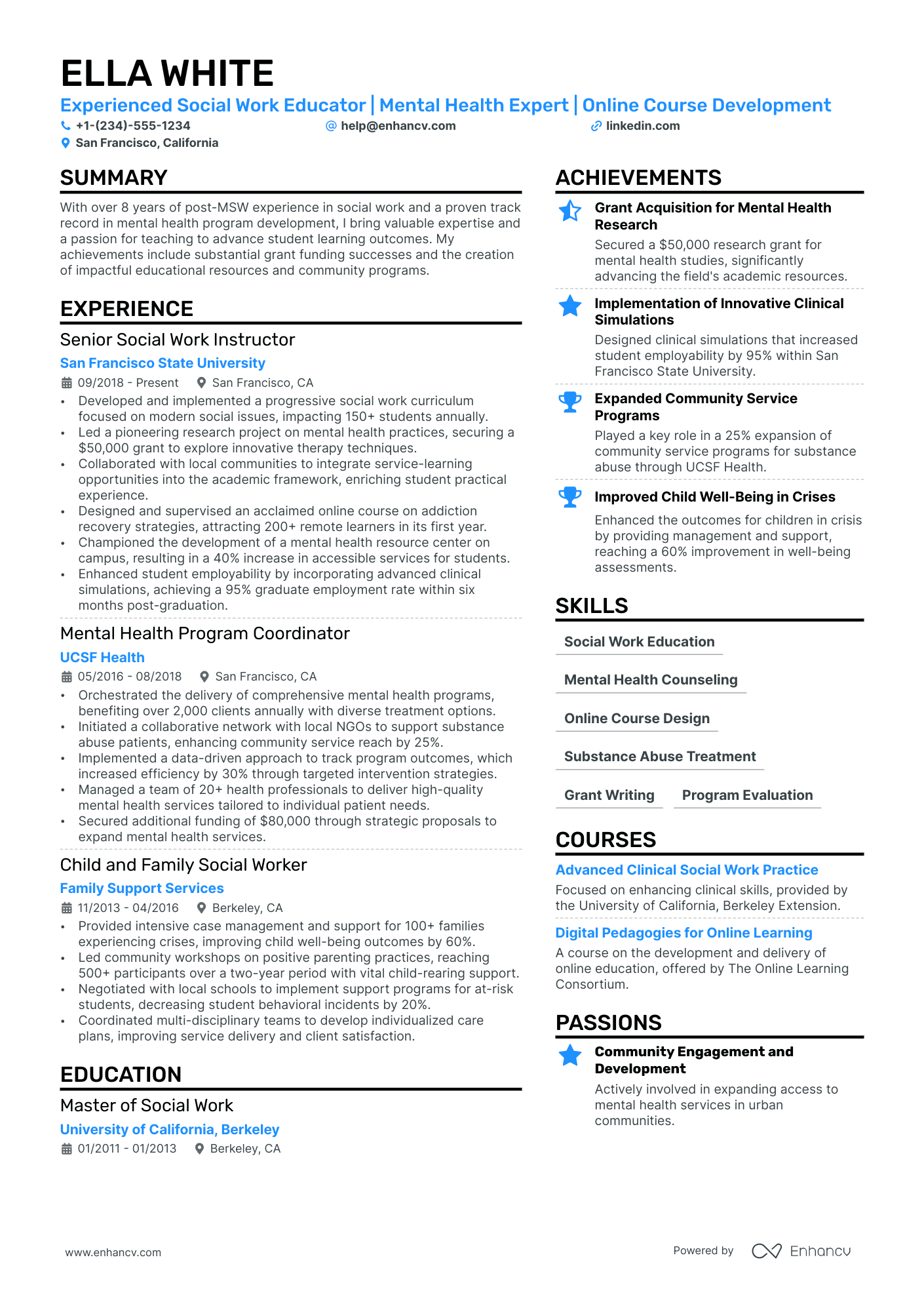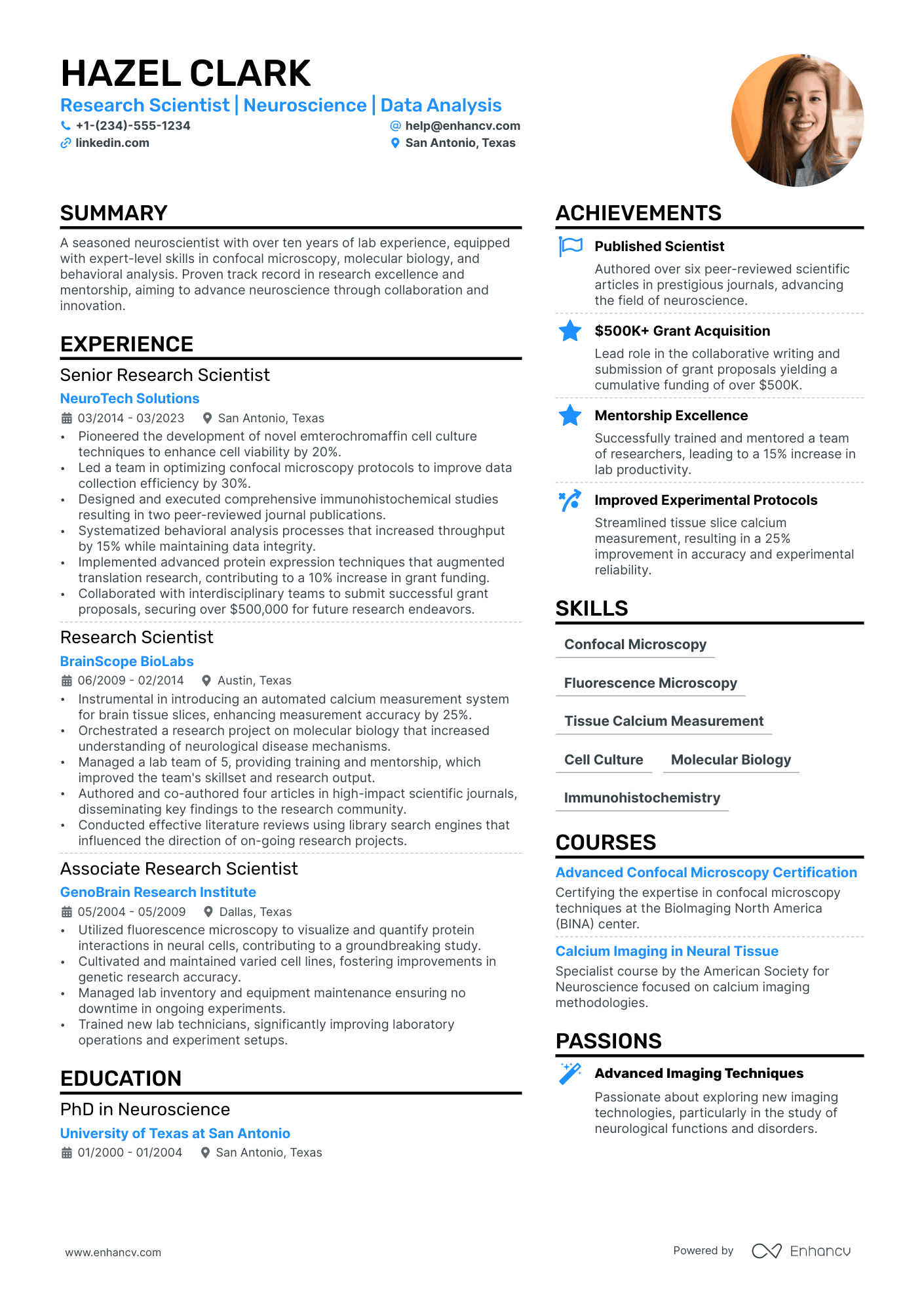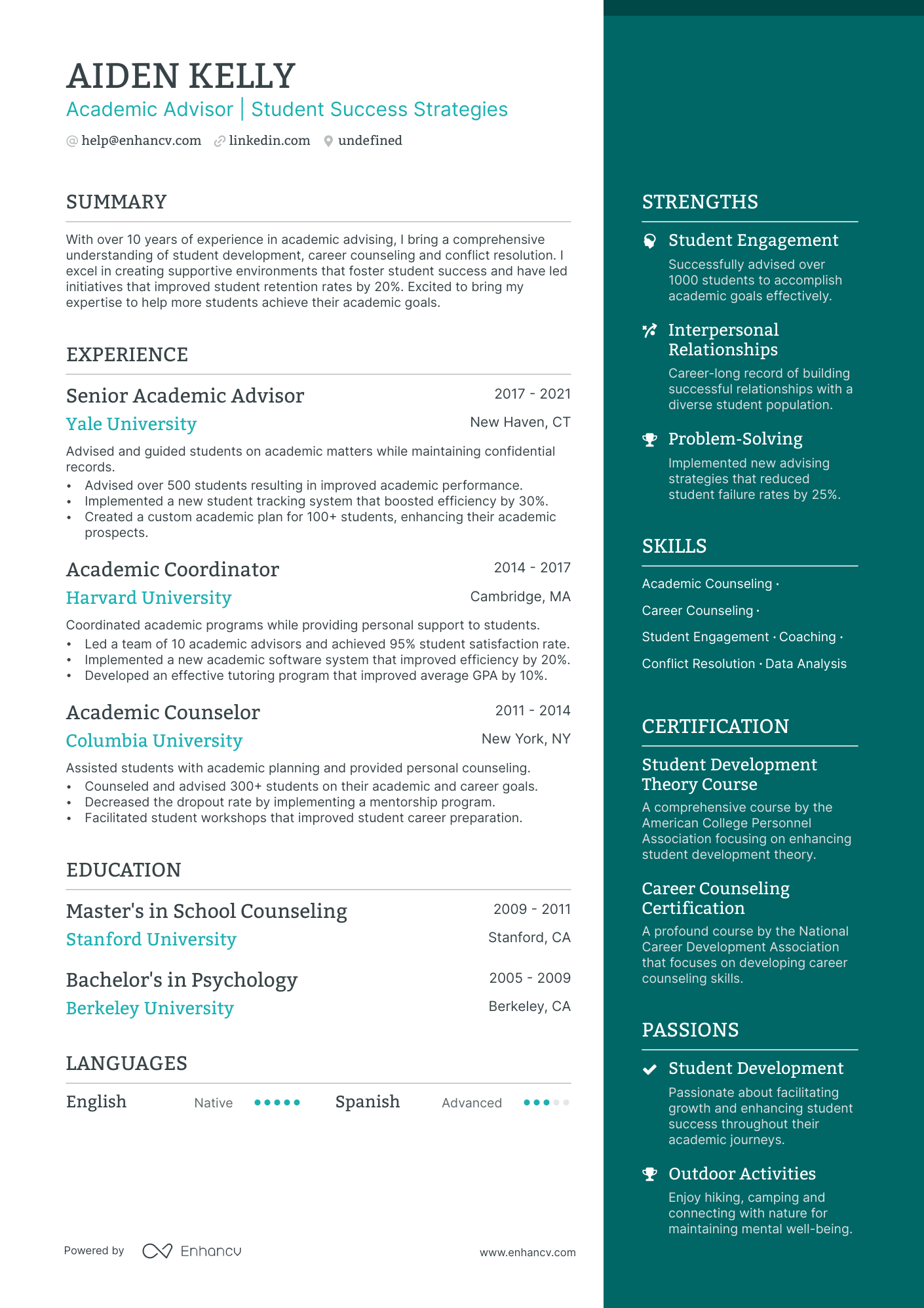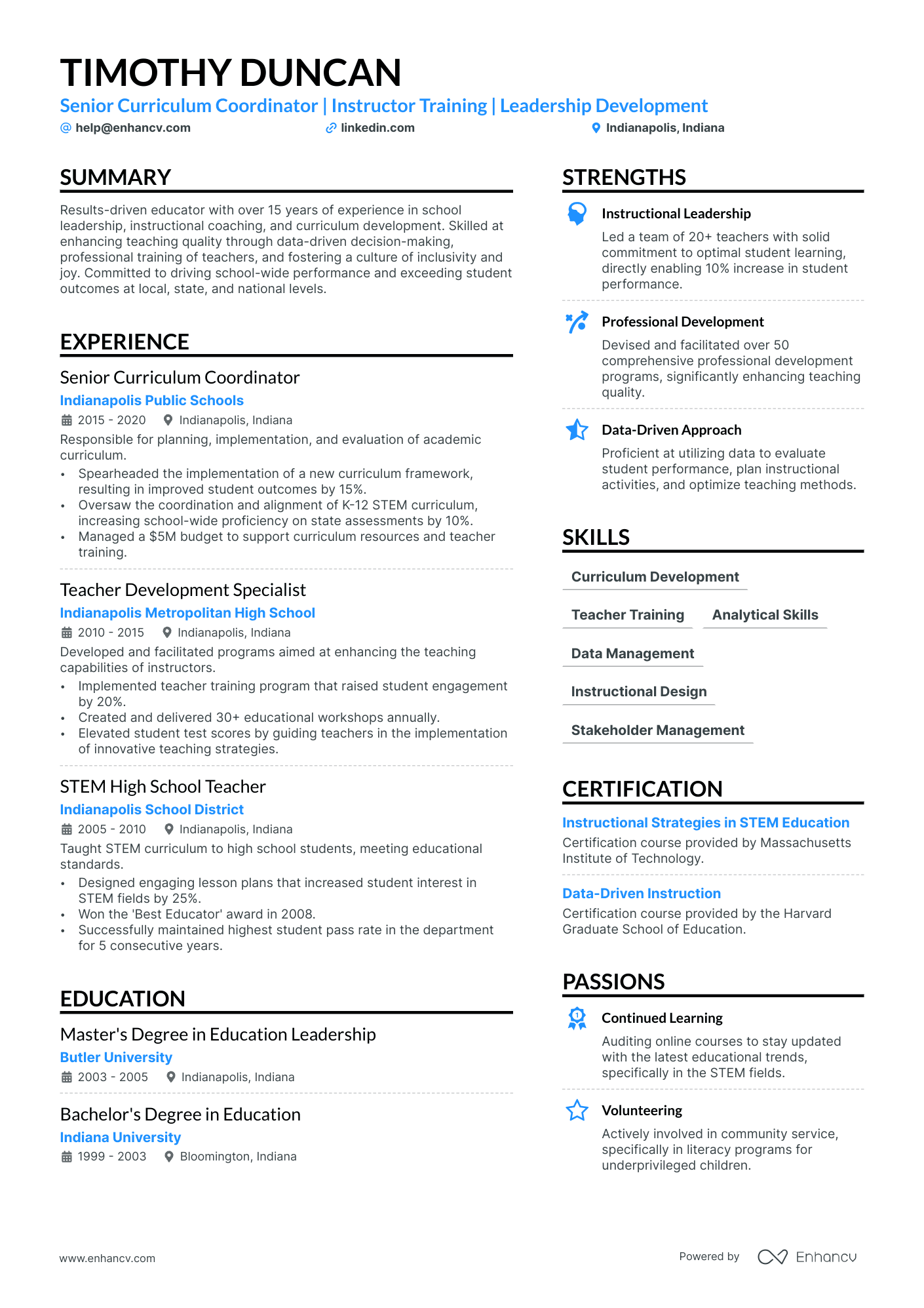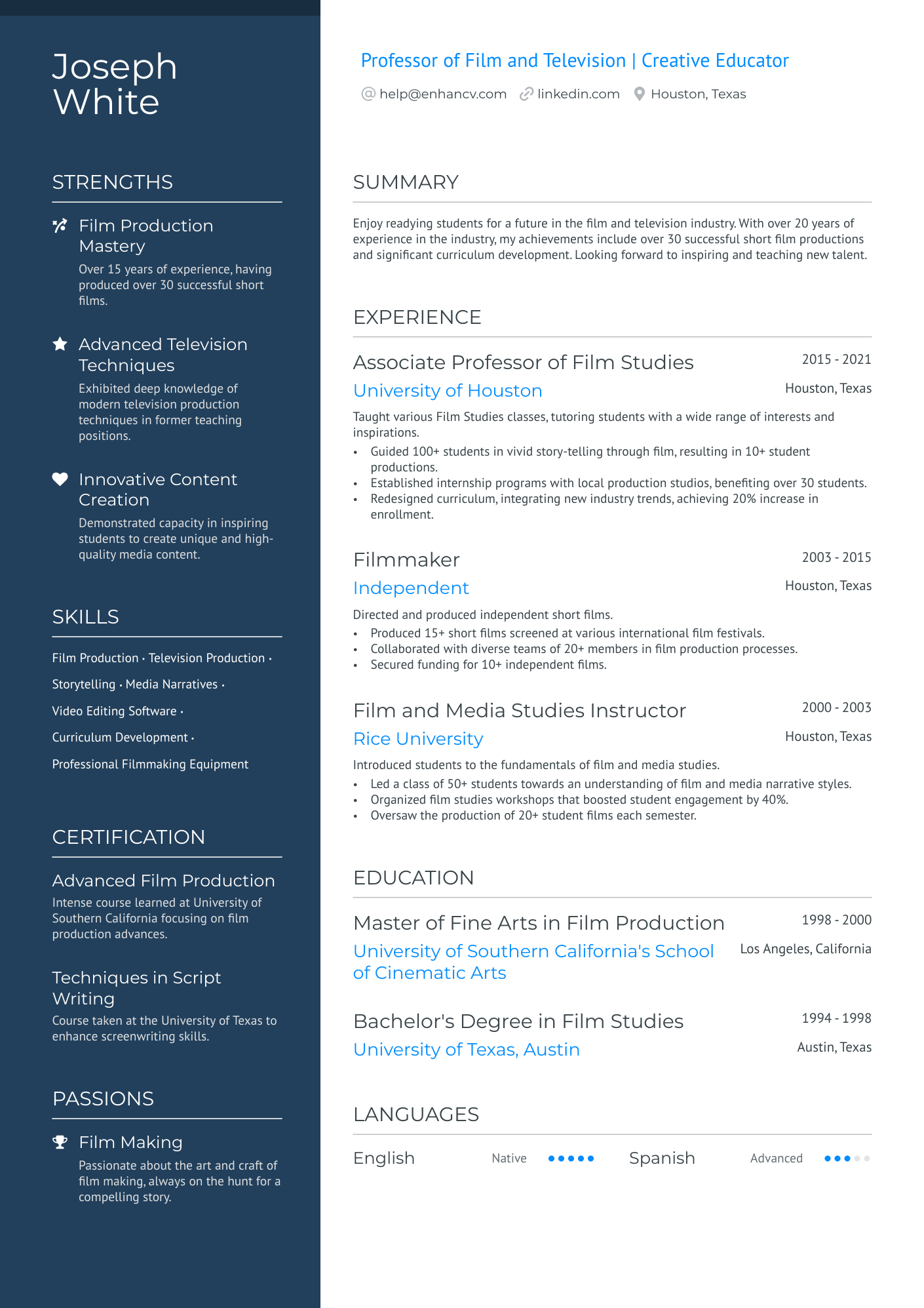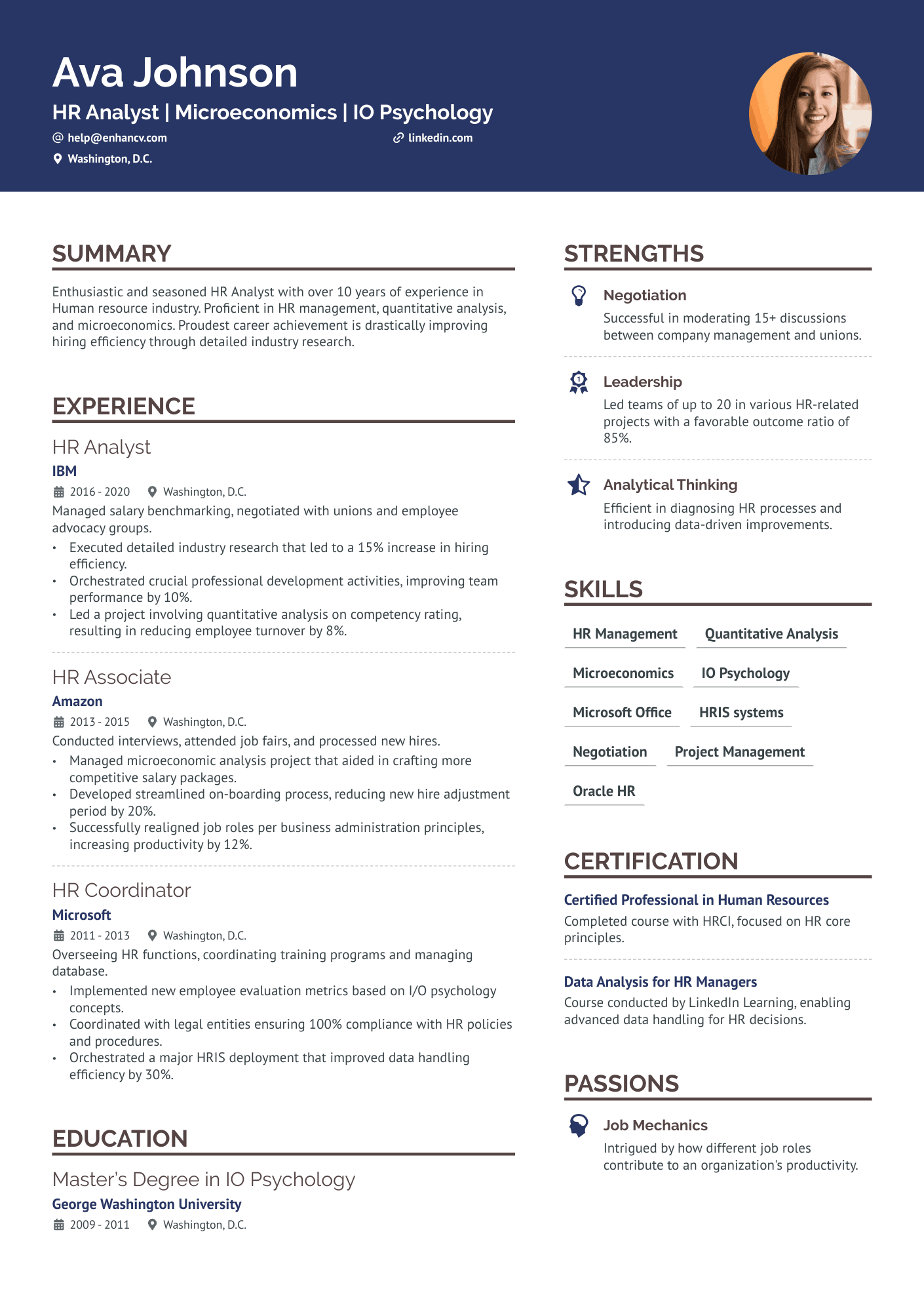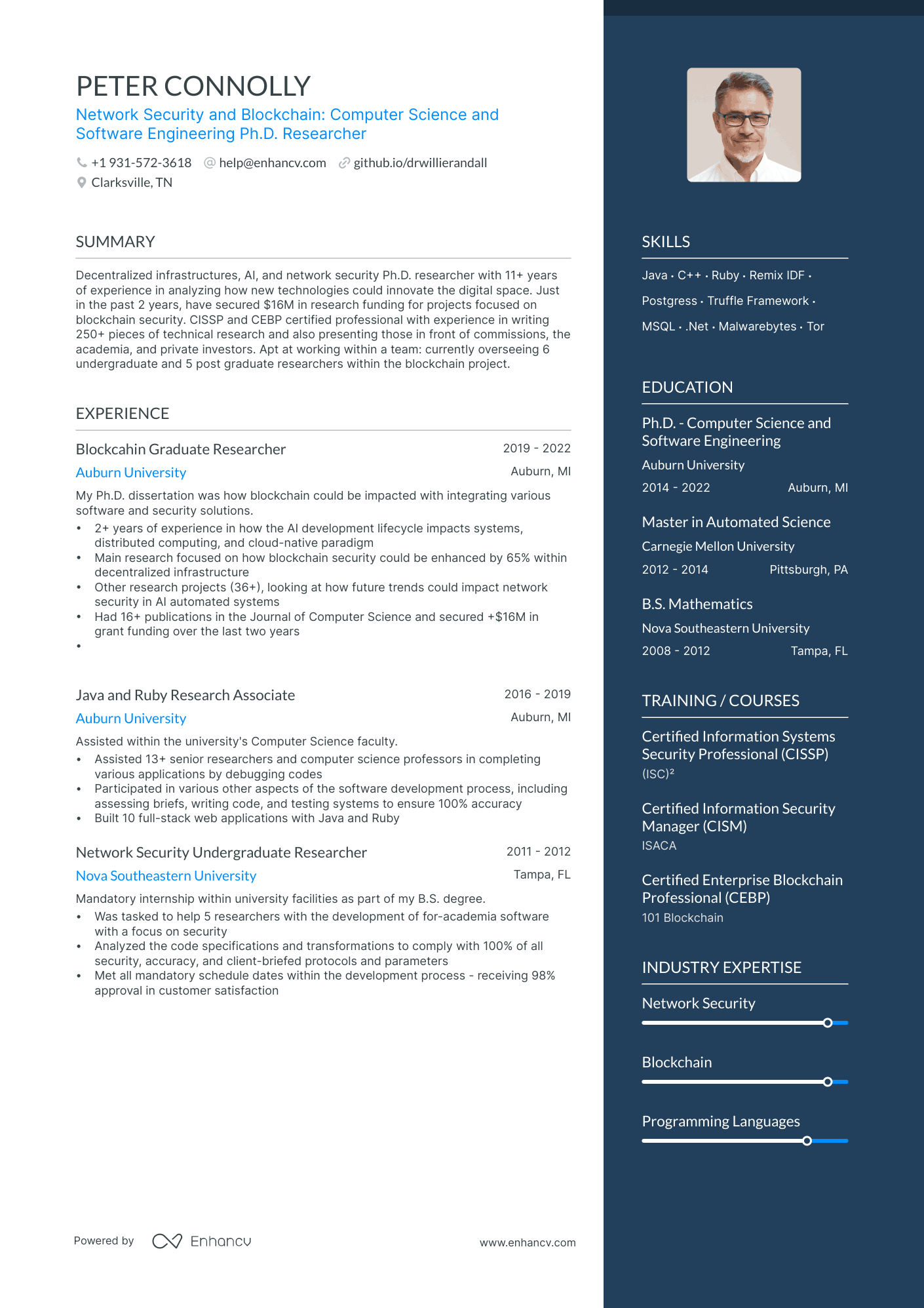Do you have solid academic experience but still struggle to find a job?
Unfortunately, that’s something typical nowadays.
Isn’t it crazy that the people who drive innovations forward should fight for a stable income?
Therefore, you cannot rely on a bright mind and deep expertise only.
The secret key is to have the right approach.
Our firm belief is that tutors and researchers deserve to reveal their full potential.
That’s why we’ve built this ultimate 2022 guide on writing an exceptional Academic resume for you.
You can go through it and learn some tips and tricks to achieve you professional and personal goals.
In science the credit goes to the man who convinces the world, not to the man to whom the idea first occurs.
Sir William Osler, Canadian physician
The postsecondary teachers job market
The median annual wage for postsecondary teachers was $79,640 in May 2021.
There were almost 1,280,000 jobs in 2020.
12% is the expected growth in these professionals (from 2020 to 2030).
More than almost any other average occupation!
This data means only one thing: fierce competition.
That’s why you should learn all the required tactics to stand out and earn the desired job.
How to write a remarkable academic resume
There is one huge mistake that a lot of professionals make when building their academic resume:
They use complex sentences and knotty words that offer no value.
Einstein once said:
'If you can't explain it to a six-year-old, you don't understand it yourself.'
Of course, you should mention the terms and specifications of your job.
However, your duty is to explain them simply and winsomely.
Then, focus on an approach that will bring clarity and value to your work:
Provide evidence for your critical thinking/analytical skills and communication-crucial for the academic resume
Show a desire to learn and to share your knowledge with others
How to do this?
Write down high-performance metrics that present you as a self-motivated individual:
- How many students did you lecture? What is the feedback?
- Did you conduct any experiments? What are the outcomes?
- Did you present the educational institution in any science competitions or forums?
Provide answers to these questions in the Experience, Education and Summary sections.
It’s vital to add a scientific project/experiment you worked on or mention some of your publications.
Thus, you show that you are the real deal.
Do you have any additional courses taken?
What are your strengths? What skills did you acquire?
Write them down immediately!
References from professors will give you an advantage.
Last but not least, tailor your resume to the job description and get hired!
Follow this academic resume guide and learn how to apply the tips above into practice!
Academic resume formats
You can fall into the following 3 resume format categories:
Two main factors could come upon the Internet:
- Years of experience
- Industry experience
You have 3 main options:
- Reverse-chronological resumes are perfect for professionals having some years in a specific niche.
- Functional resumes are suitable for people searching for a first job or career changers.
- Hybrid resumes combine the best of both worlds. They are great for entry-level and experienced candidates.
Give heed to the style and layout! Here are some resume tips:
- Font size should be 12p
- Use the optimal 10’ resume margins
- Use a one-page resume if you have less than 10 years of experience, otherwise-two-page resume
- Do not overlook your spelling, as recruiters might consider you illiterate
- PDF format is your optimal choice
If you want to become a brilliant researcher or lecturer, you should build a resume that includes Projects and Publications sections.
Top resume sections:
- Education-you should show evidence of your academic level
- Include achievements, projects, experiments, publications in your experience
- Write down a cohesive summary that presents you as an extraordinary professional
- Projects & Publications indicate a strong presence in the science
- Tailored strengths and skills are the secrets to success
What recruiters want to see:
- Convincing Education & Experience sections that underline your critical thinking, analytical and communication skills
- What other skills did you gain from your experience?
- Are students pleased with your tutoring? What’s the feedback from it?
- Are you self-motivated? Did you represent the institution in science forums, competitions, etc.? Did you conduct any experiments or write any scientific papers?
Academic summary: easy tips & tricks
Do you know how a reputable professor would present themselves in a TED talk?
Answer: The same way they do it on their academic resume:
Highly specific sentences and facts about their educational and scientific performance.
Nobody is paying you for 2-page monologues or ideas backed up with no data.
After all, it is what it is.
Thankfully, we know what’s needed to write an exceptional introduction.
Here is some advice on writing your academic resume summary:
- Mention years of experience and use quantitative data as much as possible
- Include hard and soft skills that you excelled and could share with youngsters
- Emphasize critical thinking and communication
- Add key achievements that defined your career-awards, prizes and publications
- Write down duties, responsibilities and projects/experiments you worked on
Try to avoid the following negative indicators:
- Mediocre and general sentences that describe ideas, not facts
- Facts or statements that are misleading or do not correspond to reality
- Figurative languages, inappropriate jokes and complex terms that bring no value
Here are some academic resume summary examples that should be took into account:
Pro tip
If you are a high achiever with long expertise in academic circles, only 1-2 sentences are enough to list your awards, skills and intellectual labor. On the other hand, if you are a beginner, it’s a good idea to mention your duties in your previous job and mention what you are looking for.
Academic resume experience that describes success
You might ask yourself the following question:
“Why am I supposed to explain my previous academic positions?”
Being Associate Professor means you are a successful and reputable individual, right?
Hell, no!
Do not perceive yourself as someone special.
You might have the mental capacity of Einstein or Tesla, but if you offer no value, you are no one.
Educational institutions do not expect you to be a genius but an inspiring and self-motivated visioner.
So, here are some tips to have in mind when building your Experience section:
- Describe yourself as a person who has deep knowledge and expertise and wants to share it with the young generation
- Write down facts about your previous performance backed up with action verbs and quantitative data
- Mention awards, projects, or publications to prove that you are a self-motivated and analytical person with a strong work ethic
- Include extraordinary achievements or results from your experiments
Also, to build respect, you can always add skills and strengths that you excelled.
It’s a good idea to tailor them to the job description and other sections of the academic resume.
Remember that you are what you give to your students.
If you give value, you are a hidden gem.
Start asking yourself similar questions and then write down the answers:
How did my communication and teaching approach affect students' performance?
What extraordinary skills of mine facilitated the experiments I conducted?
How does my work ethic increase my productivity?
Academic resume experience examples
- •Improved accuracy of the data I collected
- •Worked in a team of other scientists
- •Designed a presentation for a conference
- •Used computational tools and methods
We suppose that this candidate never read our guide.
Their bullet points are vague and offer no value.
Moreover, you should avoid using “I” in the bullet points.
As a researcher or tutor, it’s better to emphasize teamwork and group intelligence.
Thus, recruiters will know that you have positive personality traits.
- •Improved accuracy of data collected by 50% through proper administration of surveys, questionnaires and interview questions
- •Worked in a team of 5 chemists to develop lithium-sulfur batteries (3 publications in 2018, 2019)
- •Designed a presentation about lithium-ion batteries aimed for 300 conference participants
- •Used computational tools and methods like ab initio and reduced the the of experiments by 25%
Thankfully, some people prepare themselves before applying for a job.
The candidate followed our advice and built an admirable Experience section.
The interview call is on the way!
How to describe the duties of a teaching fellow on a resume
Give heed to the following Teaching Fellow responsibilities when producing your resume:
- Design and teach undergraduate courses on specific subjects
- Hold lectures and lead seminars, implement multiple curricula
- Assist professors with courses: preparing/updating lectures, grading and maintaining online discussion
- Assist professors in cultivating a positive learning environment, facilitate students as much as you can
It’s preferable to add these sections to your Entry-Level Teaching Fellow resume:
- References: you need strong support from the academic society to build trust and respect
- Publications: they prove that you have the practical knowledge to share with students
Take a risk and choose an unconventional approach to your resume: be as honest, direct and radiate ambition to share knowledge!
How to fill up the gaps in your resume
- The well-built Achievements section is the perfect way to show recruiters that you can bring value
- Awards are an obvious sign of respect
- Additional training/courses are a clear sign that you are a passionate learner
Academic skills that speak volumes
Most candidates take the following approach:
Skip the research part. List unique technical skills acquired. Expect the call from recruiters.
Unfortunately, this method might be unsuccessful.
You need to mention skills relevant to the education institution/company you are working on.
Emphasize communication and critical thinking-these soft skills are a must!
Teamwork, writing and statistics will help you a lot as well!
Just make sure that your abilities correspond to the job description.
The important thing is to never stop questioning (or learning).
Albert Einstein
8 hard (lab) skills list:
- Laboratory Analysis
- Writing
- QC protocol
- Visualization Tools
- Data Collection
- R
- Statistics
- Microsoft Office
8 soft skills list for your academia resume:
- Critical Thinking
- Attention to detail
- Teamwork
- Problem Solving
- Excellent Communication
- Creative Thinking
- Decision-making
- Leadership
Key Takeaways:
- Emphasize critical thinking and communication-your teaching approach is crucial
- Show that you have a strong work ethic and inspire youngster
- Add Projects/Publications/References/ Awards to build respect and support your academic presence
- Use action verbs and quantitative data to back achievements and high-performance metrics
- Write down skills and strengths that correspond to other sections of the resume and the job description
Academic resume examples
Explore additional academic resume samples and guides and see what works for your level of experience or role.
By Role
Lecturer
Professor
Just as a Product Manager's role emerged from the software engineering field, the position of a Professor emerged from the sphere of advanced studies and research. As a result, trends in higher education and research methodologies directly influence the professoriate.
When preparing your resume for a professorial position, consider the following tips:
- Highlight your experience with various advanced teaching methods like Active Learning, Problem-based Learning, and Inquiry-based Learning. Universities are constantly seeking innovative educators, hence showcasing your ability in these approaches can make your application more appealing.
- Do not merely state pedagogical skills, illustrate them. Detail how your unique teaching methodology significantly improved student understanding or led to higher grades. Follow the "skill-action-results" model.
- Display your research background. A good professor is often a good researcher. Demonstrate the impact of your research on your field and how your findings have been acknowledged by peers.
- Exhibit on your resume that you have mastered course-related technical skills, which will prove your ability to navigate and teach complex subject matters.
Remember, your resume is a testament to your knowledge, experience and innovative teaching methods, and it's these qualities that universities look for in a Professor.
Academic Advisor
High School Academic
The High School Academic role serves as a link between middle school and tertiary education, playing a pivotal role in students' achievements through its unique educational skills and methodology.
Here are some suggestions on how to customize your High School Academic role application:
- Highlight your familiarity with varied teaching techniques such as project-based learning, flipped classroom or blended learning. Mention these experiences in your resume as schools are in search for innovative educators.
- Provide more than just a list of educational theories, such as Bloom's Taxonomy or Gardner's multiple intelligences. Show how you used these approaches to improve students' performance, e.g., "boosted student involvement by...", or "enhanced test scores through...”. Use the "skill-action-results" format.
- Spotlight your specific subject expertise. Should you specialize in a certain subject as most high school academics do, indicate the positive effect this has had on your students.
- Your focus should not only be on scholastic achievements. Demonstrate how you have assisted students in developing crucial skills such as leadership, societal contribution or intra/interpersonal skills, as schools deem these important in molding students.
College Academic
Grad School Academic
PhD
For those seeking roles after completing their PhD, it is critical to focus on the skills and knowledge acquired during the process. Be it in academia, research or industry, your PhD status is a reflection of your specialized subject matter expertise.
Here are a few tips while applying post your PhD:
- Highlight your research, the discipline it falls under, and its impact. Avoid using jargon unless it is necessary.
- You've developed outstanding project and time management skills during your PhD, ensure to feature them prominently.
- Collaboration, networking, and team management skills should be highlighted if you have worked in labs or collaborated with other researchers or professors.
- Don't forget to feature your written and verbal communication skills developed through presenting findings, writing dissertations, and teaching.
